Posted on January 12 2018
It’s no secret that healthy food can be pricier than junk food. However, if you plan ahead and make a few simple adjustments to your meal planning it's possible to eat healthy nutritious foods without hurting your wallet.
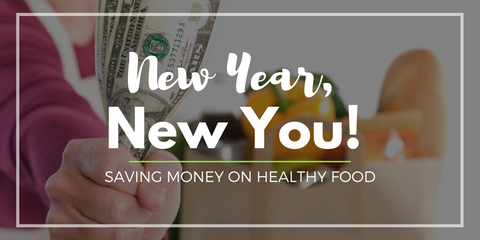
Below we’ve compiled the following tips on how to save money on healthy foods.
Buy In Bulk
Buying food in bulk has a variety of benefits, and it’s easier to do than ever before. Not only are there bulk stores like Costco, Sam’s Club and BJ’s, but most grocery stores offer bulk options or family size portions.
Buying in bulk is a key to saving money, but be sure it’s to purchase foods you’ll actually eat. Don’t purchase things that will just linger in your pantry as this will then create a lot of food waste. And food waste equals money lost.

Buying in bulk is good for you because it will save you money, reduce the amount of food additives you consume, and reduces food packaging (better for the environment).
Foods that are great for buying in bulk:
- Meats (ask the butcher for the freshest package)
- Rice
- Baking items
- Cheeses
- Spices
- Nuts
- Pasta
- Vitamins
Buy Frozen “Fresh”

If you want to save money on fruits and vegetables, buy them frozen.
According to a study conducted by The Frozen Food Foundation, the nutritional value of frozen produce is generally the same and sometimes better than fresh fruits and vegetables. The research results revealed freezing is actually beneficial for the vitamin E content of frozen fruits and vegetables. If you ever have any leftover fruits or veggies, keep them fresh by freezing in vacuum sealer bags.
Cook In Bulk - Meal Prep – Planning Ahead

There’s no denying that meal prep is a great way to save money. By cooking larger amounts of food at one time and then planning healthy meals ahead of time, you can save time and money (from not eating out) and that’s something we love.
Meal prep works for all meals, from breakfast to lunch to dinner. Plus, creating healthy options for you and your family relives stress and anxiety over pre-packaged foods that you no control over.
For example, you can make a healthy version of quiche or breakfast bowls or burritos for breakfast, freezing the extras to just grab and heat up in the morning, saving you time to get ready or spend doing other morning routines. Vegetable bags are a healthy lunch option to have ready each day. And of course, cooking and portioning a healthy dinner saves time, so all you have to do is come home from work and heat something up.
Serving Portion Sizes

Along with buying in bulk and cooking in bulk, it’s important to remember that you can save tons of money by having correct portion sizes for all your meals. Having correct portion sizes included in your meal prep saves money and helps your waistline.
One super easy way to work on serving sizes for your meals, prepared or fresh, is to have serving size utensils that provide the right servings for meat, vegetables and starches. The Jokari Healthy Steps Portion Control tool set provides precise serving sizes that are sensible portions essential for losing or maintaining a healthy weight.
Eat Foods that are In Season

You can save a lot of money by eating healthy foods that are in season because they often cost a lot less than when they are not in season. Inspect all your fruits and vegetables, including checking for wetness or leaking from them to ensure you are getting the best of the bunch.
Keep Pantry Stocked

Having a full pantry is your own protection against high prices and provisions for tomorrow at the supermarket. A full pantry can allow you to avoid unnecessary trips to the supermarket, saving time, money and gas.
Big tips on saving money on food is to buy only what your family will use, stock up on sale items, try new recipes to make more use of pantry items and keep an eye on your rotation.
Basics to keep stocked, whether canned, fresh or vacuum sealed and stored will depend on your own food preferences and uses. We do suggest the staples as mentioned previously in buying in bulk.
Don’t Waste Food

If you’ve ever thrown away food or part of your meal and thought about the cost, you’re not alone. According the US Department of Agriculture an estimated 133 billion pounds of food is wasted or uneaten each year. And wasted food hurts your pocket book and the environment.
There are a few ways to avoid wasting food to be most cost effective. You can store your food safely and keep it much longer by putting it into vacuum sealer bags. Vacuum canisters work well for fresh salads, berries or other crushable items. Leftovers can last twice as long in canister in the fridge. By doing this, your food will stay fresher for longer.
Related Posts
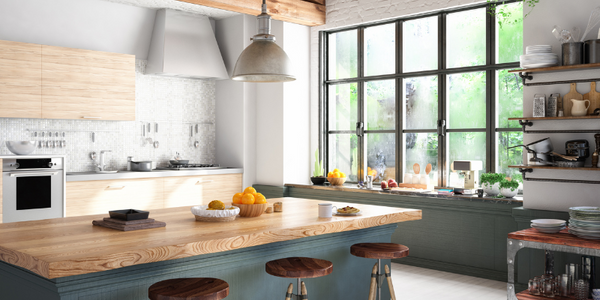
10 Kitchen Cleaning Hacks You Need to Try (Because Who Doesn’t Want a Sparkling Kitchen?)
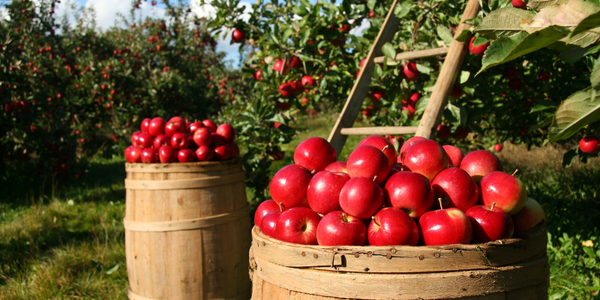
Embrace Fall with a Love for Apples and Sous Vide Cooking
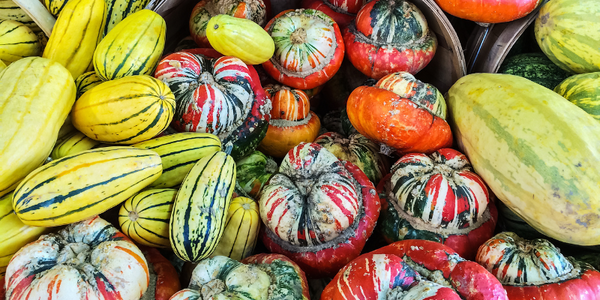
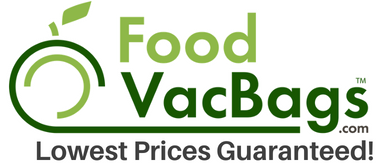

0 comments